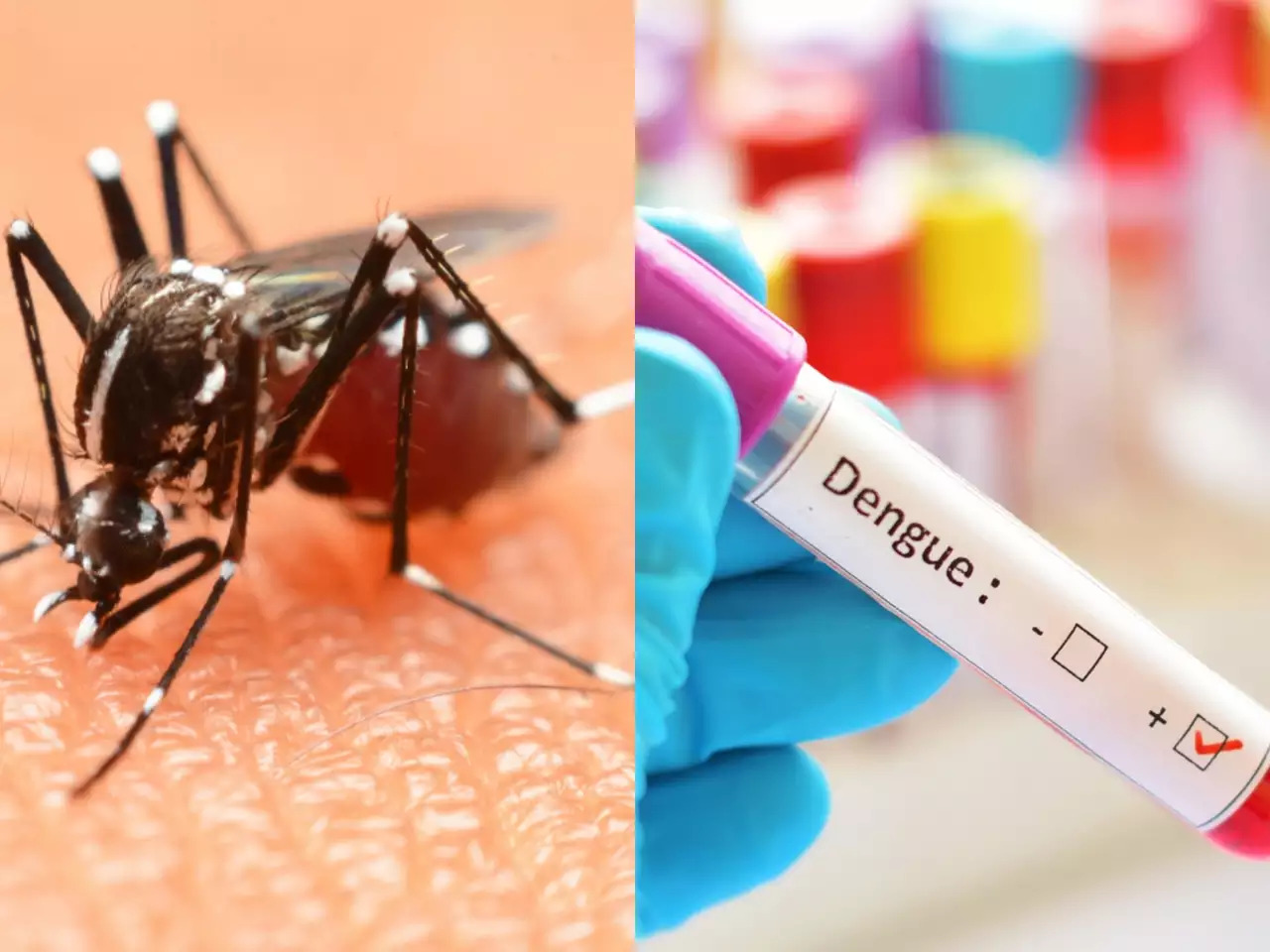5 Early Symptoms of Dengue: You Should Know
Early detection of dengue is crucial for effective treatment. Here are five early signs and symptoms to watch out for:
Sudden High Fever: Dengue often begins with a sudden, high-grade fever, typically above 104°F (40°C).
Severe Headaches and Eye Pain: Intense headaches, often behind the eyes, are common in dengue patients.
Muscle and Joint Pain: Severe muscle and joint pain, also known as myalgia and arthralgia, can be excruciating during the early stages.
Skin Rash: Some patients may experience a mild skin rash, which can be a sign of the disease progressing.
Bleeding: In severe cases, dengue can lead to bleeding from the nose, mouth, or gums, and easy bruising.
Dengue Test and Treatment Price in India
In India, various tests are available to diagnose dengue, including NS1 antigen test, PCR (polymerase chain reaction) test, IgM and IgG antibody tests, and complete blood count (CBC). Prices for these tests can vary based on location, healthcare provider, and type of facility. On average, the cost of a dengue NS1 antigen test in India ranges from INR 500 to INR 1500.
As for treatment, there's no specific antiviral medication for dengue. Treatment mainly focuses on managing symptoms and providing supportive care, including adequate hydration and pain relief. Hospitalization may be necessary for severe cases to monitor platelet counts and manage complications.
3. NS1 Antigen Test
The NS1 antigen test is a valuable diagnostic tool for early detection of dengue. It detects the NS1 protein produced by the dengue virus within the first few days of infection, allowing for early diagnosis even before the antibodies develop. This test is often conducted using a blood sample and helps healthcare professionals confirm the presence of the dengue virus in the patient's body.
4. Yellow Fever Mosquito
The primary vector responsible for transmitting dengue fever is the Aedes mosquito, particularly the Aedes aegypti species. This mosquito is often referred to as the yellow fever mosquito due to its ability to transmit both dengue and yellow fever. Aedes mosquitoes are typically active during the day, with peak biting periods being early in the morning and late afternoon.
Prevention and cure
Preventing dengue transmission involves controlling the Aedes mosquito population through measures like proper waste disposal, eliminating stagnant water breeding sites, and using insecticides and protective clothing to minimize mosquito bites.
What Not to Eat in Dengue for a Speedy Recovery?
1. Avoid Street Food: Steer clear of street-side chaat, golgappas, and unhygienic food stalls to prevent stomach issues during dengue.
2. Limit Spicy and Oily Dishes: Cut down on spicy curries and oily fried foods; they might trouble your digestion while dealing with dengue.
3. Skip Citrus Fruits (like Mosambi): Avoid fruits like oranges and Mosambi that can be too tangy and harsh on your stomach during dengue.
4. Reduce Chai and Alcohol: Try to cut down on your regular cups of chai and alcohol; they can dehydrate your body more.
5. Go Easy on Pickles and Papad: Don't overindulge in pickles and papad; they're usually high in salt and might cause bloating and discomfort.
In conclusion, being vigilant about early signs of dengue, promptly seeking medical attention, and taking preventive measures against mosquito bites can significantly reduce the impact of this disease. Public awareness and effective mosquito control programs are key to mitigating the spread of dengue and its potentially severe consequences
http://www.21stcenturyhospitalgownplus.com/
http://www.elite-factory-15.fr/
http://www.gba-amateurboxen.de/
http://www.kita-strausberg.de/
http://sonispicehelensburgh.co.uk/
http://curryzonecardonald.co.uk/
http://cinnamon-edinburgh.co.uk/
http://www.bombaydelipaisley.com/
http://pizzanightclydebank.co.uk/
http://www.pizzanightclydebank.com/
http://gyros2goclydebank.co.uk/
http://grillicious-glasgow.co.uk/
http://www.abdulstakeaway.com/
http://www.freddiesfoodclub.com/
http://cinnamonportobello.co.uk/
http://www.romafishnchips.com/
http://bombaydelipaisley.co.uk/
http://yaraloungerestaurant.co.uk/
http://tasteofchinacoatbridge.co.uk/
http://www.memoriesofindiagorebridge.com/
http://memoriesofindiaeh23.co.uk/
http://freddiesknightswood.co.uk/
http://gyros2gohardgate.co.uk/
http://www.strausseeschwimmen.de/
http://www.janstanislawwojciechowski.pl/
http://london-takeaways.co.uk/
http://shahimanziledinburgh.co.uk/
http://freddiesfoodclub.co.uk/
http://www.spicestakeaway.com/
http://www.mexita-paisley.com/
http://pandahouseglasgow.co.uk/
http://www.zum-alten-steuerhaus.de/
http://www.oberstufenzentrum-mol.org/
http://www.morsteins-neuenhagen.de/
http://www.maerkische-jugendweihe.de/
http://www.planungsbuero-henschel.de/
http://www.hertzelektronik.de/
http://www.militaergefaengnisschwedt.de/
http://www.fahrrad-naumann.de/
http://www.hondamoto-villemomble.com/
http://www.hondamoto-royan.com/
http://www.hondamoto-ajaccio.com/
http://www.download-skycs.com/
http://www.sisakoskameleon.hu/
http://www.hondamoto-montauban.com/
http://www.hondamoto-chalonsursaone.com/
http://www.hondamoto-champignysurmarne.com/
http://www.hondamoto-asnieres.com/
http://www.pasquier-motos.com/
http://www.evacollegeofayurved.com/
http://www.compro-oro-italia.it/
http://www.hondamoto-saintmaximin.com/
http://www.hoangminhceramics.com/
http://www.pasiekaambrozja.pl/
http://www.xn--b1alildct.xn--p1ai/
http://www.ferreteriaflorencia.com/
http://www.thevichotelkisumu.com/
http://www.nexuscollection.com/
http://www.moitruongminhhuy.com/
http://www.ozkayalarpaslanmaz.com/
http://www.munkagepmonitor.hu/
http://www.my247webhosting.com/
http://www.thesmokingribs.com/
http://www.healthlabgrosseto.it/
http://www.ochranakaroserie.cz/
http://www.phukiendonginox.com/
http://www.meijersautomotive.nl/
http://www.kartaestudentit.al/
http://www.podlahyjihlavsko.cz/
http://www.hillhouseequestrian.com/
http://www.gradskapivnicacitadela.com/
http://www.capella-amadeus.de/
http://www.landfleischerei-auris.de/
http://www.faistesvacances.be/
http://www.autoservice-doernbrack.de/
http://www.tabakhaus-durek.de/
http://www.oldtimer-strausberg.de/
http://www.imexsocarauctions.com/
http://www.kaslikworkshop.com/
http://www.firefightercpr.com/
http://www.visuallearningsys.com/
http://www.hanksautowreckers.com/
http://www.impresospichardo.com/
http://www.philiphydraulics.net/
http://www.internationaldentalimplantassociation.com/
http://www.indywoodtalenthunt.com/
http://www.badicecreamgame.com/
http://www.riad-amarrakech.com/
http://www.centrodeformacioncanario.com/
http://www.socialdefender.com/
http://www.pepiniere-paravegetal.com/
http://www.reparertelephonearles.fr/
http://www.namsontrongdoi.com/
http://www.devipujakjivansathiseva.in/
http://www.laymissionhelpers.org/
http://www.vangiaphatdeco.com/
http://www.isscoachinglucknow.in/
http://www.hieuchuandoluong.com/
http://www.aurorabienesraices.com/
http://www.indianmoversassociation.com/
http://www.oztopraklarotomotiv.com/
http://moitruongnamnhat.com.vn/
http://www.dienmayvinhthuan.vn/
http://www.divadelkoproskoly.cz/
http://www.xn--12cfje1df4hdl7f1bf2evg9e.com/
http://www.westernirontrailers.com/
http://www.jazzaufildeloise.fr/
http://www.signcraft-drone.com/
http://www.realtyhighvision.com/
http://www.thermexscandinavia.nl/
http://imobiliariafelipe.com.br/
http://www.salon-lindenoase.de/
http://www.jezirka-zahrada.cz/
http://www.singhanialogistics.in/
http://www.der-pixelmischer.de/
http://www.hegermuehlen-grundschule.de/
http://www.radiologie-strausberg.de/
http://www.foto-studio-matte.de/
http://www.tables-multiplication.com/
http://www.rusztowania-belchatow.pl/
http://www.fishingandhuntingheaven.com/
http://www.orologiegioiellilameridiana.it/
http://www.rotarybresciaest.org/
http://www.jacarandaspain.com/
http://www.javieririberri.com/
http://www.huebelschraenzer.ch/
http://www.illinoiscreditunionjobs.com/
http://www.iznikdenizorganizasyon.com/
http://www.leasebackconcierge.com/
http://www.eoisantacoloma.org/
http://skullbasesurgery.co.uk/
http://www.immobilienplattensee.com/
http://www.germandailynews.com/
http://www.gptdcinternational.com/
http://www.forklifttrainingedmonton.com/
http://www.kashiwanakayama-cl.com/
http://www.thehousemediagroup.com/
http://www.pensiimaramures.ro/
http://www.michaelakokesova.cz/
http://www.viswabrahmanaeducationaltrust.com/
http://krone-aluminium.com.pl/
http://www.broadwaylumber.com/
http://www.ambulancesoccasions.com/
http://www.continuumintegrated.com/
http://www.joilifemarketing.com/
http://www.rotaseydisehir.com/

 Dengue, a viral illness spread by Aedes mosquitoes, presents fever, severe headaches, muscle pain, and bleeding. Early symptoms, NS1 antigen test, and affordable treatment are crucial in managing this health threat, particularly in places like India.
Dengue, a viral illness spread by Aedes mosquitoes, presents fever, severe headaches, muscle pain, and bleeding. Early symptoms, NS1 antigen test, and affordable treatment are crucial in managing this health threat, particularly in places like India.




.jpeg)
.jpeg)
_(1)_(1)_(1).jpeg)
.jpeg)

.jpeg)
.jpeg)
.jpeg)

.jpeg)





.jpeg)

.jpeg)

.jpeg)
.jpeg)
_(1).jpeg)





